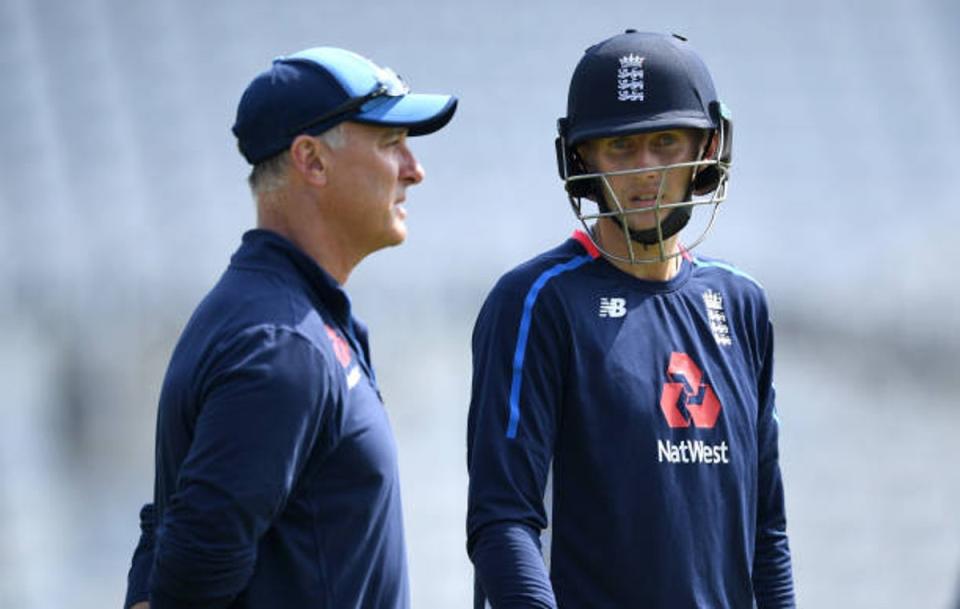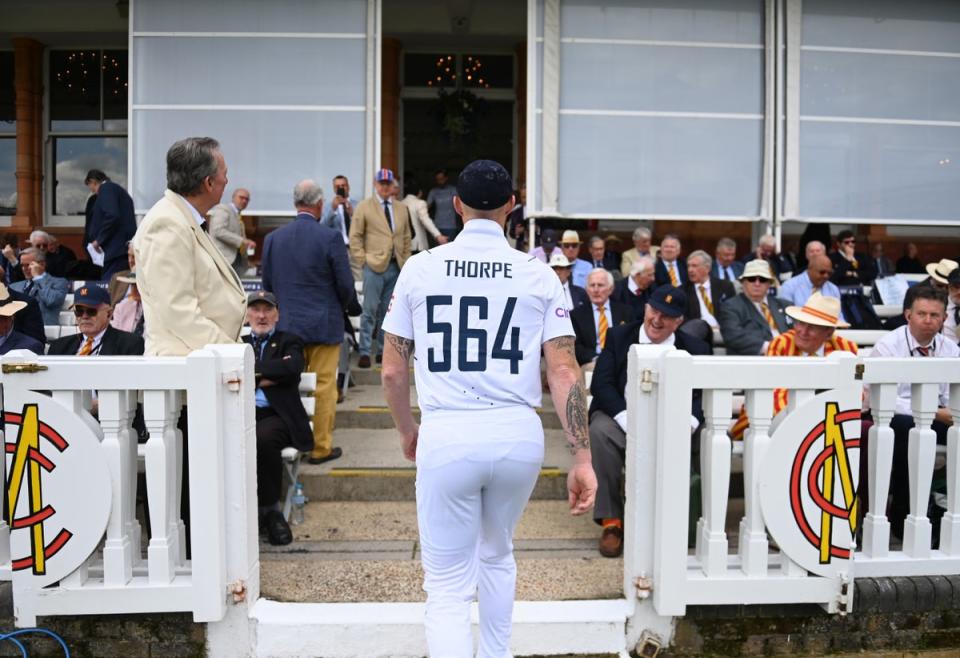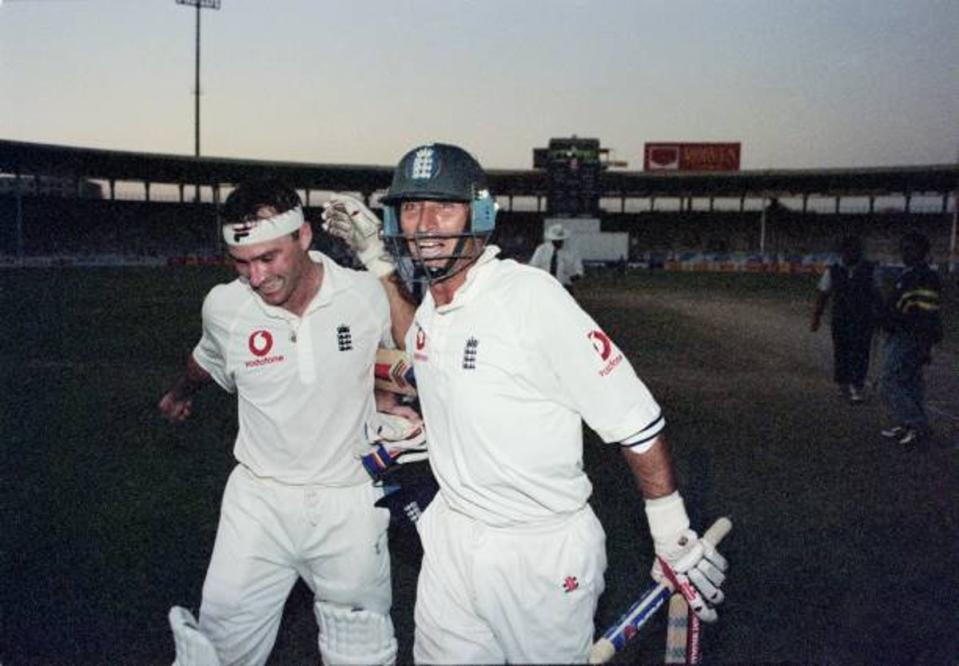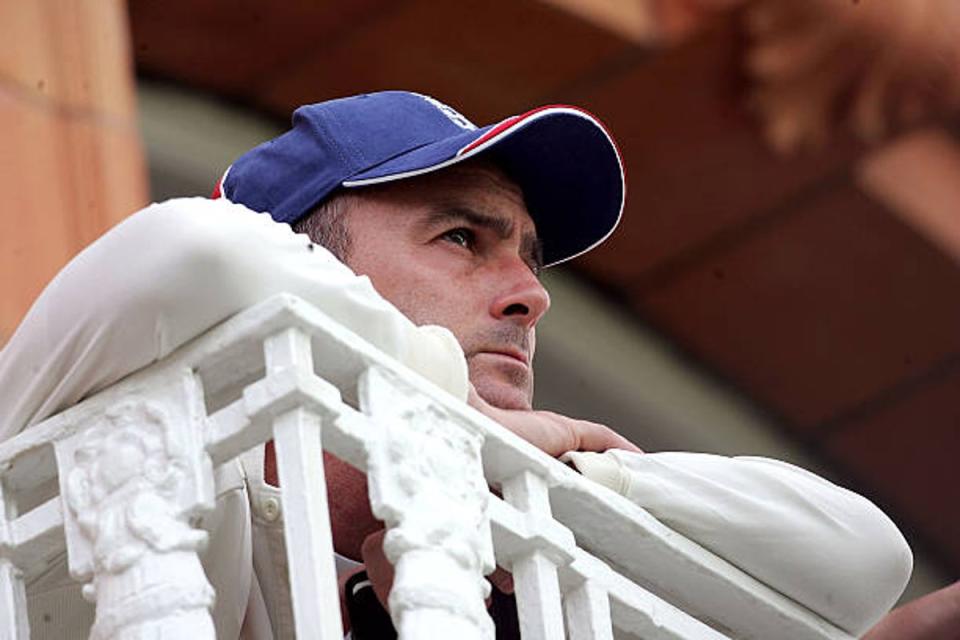
A dark day for English cricket conjured up visions of a different kind of darkness, of photographs taken in the Karachi gloom, of Graham Thorpe’s iconic white headband providing a contrast to the evening twilight. Thorpe’s unbeaten 64 in the gloom of 2000 – perfectly paced, eminently calm – secured both the third Test and the series victory against Pakistan. It was a decisive innings, perhaps the most famous by a man who played 100 Tests and finished with the highest average (44.66) of any English batsman between Geoffrey Boycott and Kevin Pietersen.
And yet it was not even his best performance that winter. Three months later in Colombo, England made 249 and 74-6 to beat Sri Lanka. In two innings, his 10 teammates scored 151 runs batting, losing 16 wickets. Thorpe scored 113 and 32, both not out, playing alone in unfamiliar conditions. It remains one of the finest performances by any English batsman in Asia. It probably always will be.
Thorpe’s death at just 55 has prompted tributes that reflect an enduring influence as well as a sense of nostalgia. “Hero, mentor and so much more,” said Joe Root, offering an indication that Thorpe’s second career as a batting coach could be almost as significant as his first as the rock of England’s middle order. “The best left-handed batsman I’ve ever played against,” said the all-time leading left-arm fast bowler, Wasim Akram, and while the Pakistan legend may have overlooked Brian Lara in delivering that assessment, it was nonetheless an indication of a virtuosity that could be camouflaged: by England’s defeats in the early part of Thorpe’s time in the team – in his first seven years of Test cricket he made only two centuries in winning causes – and by his lacklustre style.


His friend and captain Nasser Hussain often referred to Thorpe as a “little genius”. Yet, unlike the complications he experienced outside cricket, there was a kind of simplicity to his batting; or at least an ability to make it simple. He could drive the ball through the covers as if it were destined to find the middle of his bat. Thorpe came closest to extravagance with his signature shot – “that famous shot with the knee up” as Stuart Broad described it – which established Thorpe as both a good fast bowler and a specialist in counter-attacking innings. These shots were often necessary. While my memory suggests that he spent much of the 1990s walking to the crease at 20-2, his second Test century, at Perth in 1995, came when he got out at 5-2.
He had also scored a hundred on debut against Australia in 1993, but he was defined in part by a finish that denied him an Ashes victory: he was dropped ahead of the 2005 series, cruelly but correctly, with Thorpe’s back problems and the emergence of Pietersen changing the equation.
He finished with a hundred, becoming the eighth player to reach 100 Tests for England, in addition to the 16 hundreds he scored. While the events of a tumultuous personal life and the midst of an acrimonious divorce affected his mood and form, there was nevertheless a consistency as well as excellence in his record: he averaged 45 at home, 44 away, 47 in Asia, 48 in Australia, 45 in the Ashes matches. His first ton against Shane Warne was no fluke: in 1997 he made 138 and added 288 with Hussain at Edgbaston. His ability to play against Muttiah Muralitharan was crucial in the series victory in Sri Lanka in 2000–01.


He thrived in an era of exceptional bowlers, whether they were quality or not. For the first half of his career, he was the provocateur in an underachieving team; in the second half, he played a major role in turning England into a winning team. After the tribulations of the 1990s, England’s renaissance in the 21st century owes much to Thorpe. Ten of his centuries have come in his last 40 Tests.
Mike Gatting wondered what Thorpe could bring to the party, apart from runs. But in the end he brought plenty of them – 6,744 – and much else besides, especially in the right environment. Hussain mastered the awkward team, the misunderstood, the misfits and the mavericks; Andrew Caddick and Dominic Cork also benefited from his appointment. Michael Vaughan’s team then played with more freedom and flair. Thorpe averaged 56 runs under the Yorkshireman’s captain; in a glorious 2004 he scored 951 runs at an average of 73.
There was a cathartic century in the fifth Test victory against South Africa in 2003, after a year without playing international cricket. There was another example of his ability to thrive when everyone else was floundering, an unbeaten 119 against the West Indies in Barbados when Vaughan’s next highest score was 17. There was further proof of his composure in a chase: needing 284 against a formidable New Zealand team in 2004, Thorpe came in at 46-3 and anchored England to a four-wicket victory with 104 not out.
There were innings that only Thorpe seemed capable of playing, but he did. And while focusing on them only skims the surface of his one-day record, or the county championships he won with Surrey, or his coaching career, let alone off-field matters, those 100 Tests and that ability to shine gave him a claim to greatness. Batting at No. 4 and No. 5, going against the tide anywhere in the world, with his team in trouble or with games on the line, required someone who could excel in the situation. And in Graham Thorpe, England had the batsman for every situation.